


Rob (Cian Barry) is broken and suicidal. His girlfriend, Nina (Fiona O’Shaughnessy) died in car accident. He’s given up his dreams, as someone who is in mourning does, taking a job at a supermarket and visiting weakly with Nina’s parents. His shy co-worker and paramedic in training, Holly (Abigail Hardingham), sees something in him and he, in desperation, goes out with her. Her acceptance of him, and the energy of her life gives him what he needs and they quickly end up in bed together. But their passion calls up undead Nina, who emerges from the mattress in a pool of blood, twisted and broken. Nina is none-too-pleased with her boyfriend—not “ex” as they never broke up and now, never can—playing with another girl. Holly retreats off the bed, but stays, waiting for Rob to do something. But when he doesn’t, and ends up being kissed by the corpse, Holly takes off, and soon after, Nina vanishes. But neither are through with each other, and are drawn together again, with Holly vowing that they will make it work, and that she’s willing to deal with Rob’s past, and the corpse it invokes.
This is not going to be a normal review for me, but rather more of a critique, which means spoilers galore. So, if you just want the basics, I’ll sum it up with: Forever Nina is well-crafted, with a solid performance from O’Shaughnessy and a masterful one from Hardingham, which makes it particularly galling when the film fails so miserably. It is not a horror picture, but a relationship drama, with a living corpse, that exists for its theme, a theme that misses what life is like.
On to the heart of things. This is a film about grief (yes, if you’ve seen it and know a bit more, just wait; I’ll get there). Unfortunately, I have a bit of experience with the subject, and the filmmakers don’t seem to. Films get grief wrong, over and over again, which makes those who are grieving feel just a bit more alone, so I am interested in a film that might finally get it right, and for a time, Forever Nina could have been that film. But that time was brief, and things then fall apart so badly that it seems no one connected to this film has ever had a loved one die. That seems unlikely, but I’m at a loss for another explanation.
This is a metaphor movie to the point that people and events obey the rule of the metaphor. Rob is grieving. He can’t let go of Nina. She is always with him, in his mind, and so, when he has sex with Holly, Nina appears because she is always in his mind. She is the manifestation of his loss, his need for Nina, his inability to forget her, and his survivor’s guilt. Nina spells out the situation clearly: She doesn’t want to be there, but she has no choice because Rob can’t forget her, and they can’t move on in their relationship, can’t even break up, because she’s dead. There is no closure. I can’t argue with that last bit.
Here we see our first sign of trouble. Rob is not very likable. We learn little about him over the course of the film, but what we do learn doesn’t make him a bad guy, just a ho-hum one. And the few things he does range from stupid to stupidly cruel. But he’s grieving, so he’s off the hook. He isn’t expected to be a great guy since what he wants is to be a dead guy.
Holly, on the other hand, is near perfection. She is beautiful, fun, forceful when she needs to be, wild, accepting, caring, and open. She can deal with the worst situations, ones that would destroy anyone else or at least send them screaming from the room. Holly is a paragon. And while a bit unrealistic, I’m good with that.
Nina, on the other hand, is a bitch. She’s territorial, but also hurts both Rob and Holly just for the Hell of it. She could get a partial pass if this was due to her unpleasant situation—glass in her throat, a broken body, and no escape—but a few exchanges indicate that she was always like this.
This sets up a far too simple dichotomy. The old girlfriend is bad. The new one is good. Who should we root for? It could be far more interesting and moving if both were loving. But it is worse as we’re in metaphor-land, making the nasty corpse the equivalent of memories of the lost one. It seems you can’t have good memories of the deceased.
Now Holly, being wonderful, acts kindly and respectfully, inviting Nina into their lovemaking and taking actions to show that Nina will never be forgotten and that she’s not there to replace her. Metaphor-wise, that is exactly what Rob needs. That is the way to deal with grief—to find a new reason to live and act, particularly in the love of someone new while keeping the memories of the past, honoring them, and never forgetting. Holly is willing to accept Rob with his baggage, with his ghost, both metaphoric and non-metaphoric.
Huh. Well, the filmmakers messed up on Nina, but maybe, partly, they do understand grief.
But wait, it turns out the film isn’t about grief. All that stuff about mourning, about remembering vs moving on vs family—forget all that. It turns out, grieving is easy. Just man-up and get on with your life. Get a good job and sever all ties with your dead loved-one’s family, as Rob does, and you’re good to go. Sure, it takes some sex and attention from a girl to set the process in motion, but after that, it’s a breeze and the new girl doesn’t matter.
That doesn’t mean the film isn’t still all a metaphor, just not for grief.
You see, it turns out Rob’s grief had nothing to do with summoning Nina. Sure, it seemed like it did in many ways and Nina pointed out she was in his head, and much of the first half makes no sense without that, but nope. And if the metaphor doesn’t involve grief, it is strange that it is Nina who is summoned instead of some other form of undead metaphor. But nope, forget all about grief and the whole point of the picture. It was Holly who was summoning Nina because Holly is sick. She’s got Florence Nightingale Syndrome. She only liked Rob because he was in bad shape and she wanted to fix him. That’s why she wants to be a paramedic. Paramedics all have messed up personalities apparently. All those times she was being reasonable and loving, she wasn’t. A woman wouldn’t actually accept a man with his pain, and help him with it. She wouldn’t take the man and his ghost. No. Even though that is exactly what my wife did when I was grieving over the death of my first wife. No, women only do that kind of thing when they are crazy. And once Rob is doing OK, he’s no longer interesting to Holly. So much for Rob.
But Holly’s need to save people (which is bad—very bad—which is made clear when she turns out to be a very good paramedic because…OK, I’ve no idea why her being a good paramedic indicates she’s a mess, but it does), her insecurities, and her dark side, which isn’t all that dark, draw Nina to her. So now she’s got Nina’s corpse with her, and Rob goes happily on his way.
It’s a mind boggling mess. This was a movie that desperately needed not to have a twist, and not such a ridiculous one. If it wasn’t about grief, why did we follow Rob when Holly wasn’t around. Why’d we stick with him as he cleaned up the blood and then tried to take gory sheets to a public laundry? Why did we see him at Nina’s parents as they dealt with their feelings and his future? What was the point except to make the actually interesting part of the film a huge red herring? I suppose I answered that: It was all a red herring.
The writing/directing team of Ben and Chris Blaine end up with statements that defy humanity. Mourning is no big deal. Just don’t wallow it in and you’ll be fine. Besides, no decent girl will want you. And as for women who have a touch of the goth about them and want to help people, stay away from those sickos.
Grieving is horrendous, and there is no moving on. You don’t get over it. Nor should you want to. You can continue to function and have a life, and a way for that to happen would be for a Holly to come along, to bring purpose and love. Forever Nina rejects that, which is truly sad.




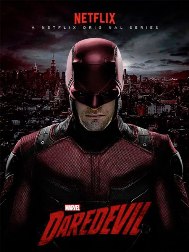

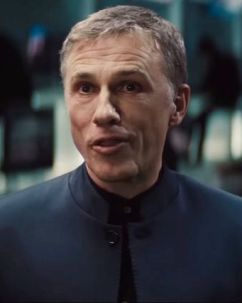
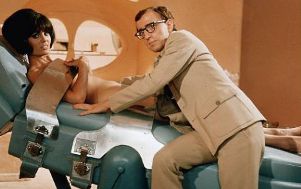
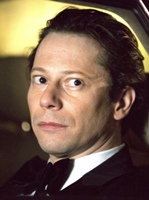
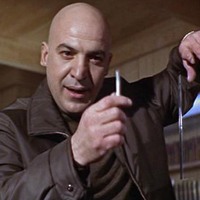
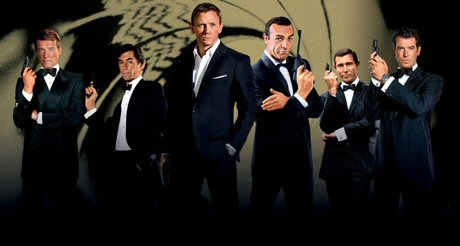 The Oscars are tonight, and I’ve never cared less. There is nothing of interest nominated. This isn’t exactly new. The Oscars are wrong almost every year in almost every way. So, I needed something cinema-related that was about as far form The Oscars as I could go. But I wasn’t prepared for a nunsploitation essay, and I have been re-watching all the Bond films, so, Bond it is. Here are my ranking of the 28 Bond films (updated for No Time To Die, and including the 3 non-Eon productions).
The Oscars are tonight, and I’ve never cared less. There is nothing of interest nominated. This isn’t exactly new. The Oscars are wrong almost every year in almost every way. So, I needed something cinema-related that was about as far form The Oscars as I could go. But I wasn’t prepared for a nunsploitation essay, and I have been re-watching all the Bond films, so, Bond it is. Here are my ranking of the 28 Bond films (updated for No Time To Die, and including the 3 non-Eon productions).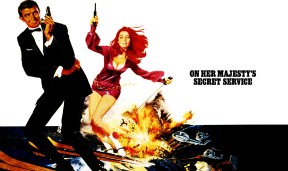 #28
#28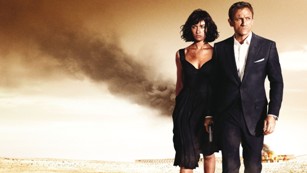 #27
#27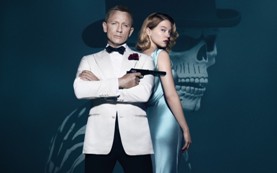 #26
#26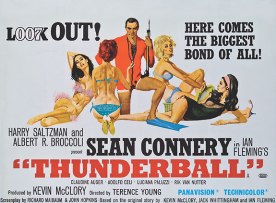 #25
#25